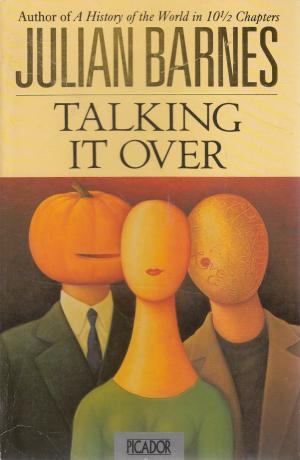 If people think singular they is a new feature in the English language, arising out of the need to express gender neutrality: it isn’t. There was already an article about the pronoun in 1975, by Ann Bodine. Very well worth reading, I find, even forty years on. But there is also a whole chapter in a novel that deals with the issue, already in 1991: the opening chapter in Julian Barnes’s Talking it over. The usage, as the chapter shows, was already felt worthy of being defended in the the early 1990s.
If people think singular they is a new feature in the English language, arising out of the need to express gender neutrality: it isn’t. There was already an article about the pronoun in 1975, by Ann Bodine. Very well worth reading, I find, even forty years on. But there is also a whole chapter in a novel that deals with the issue, already in 1991: the opening chapter in Julian Barnes’s Talking it over. The usage, as the chapter shows, was already felt worthy of being defended in the the early 1990s.
In other words, it hasn’t ceased to amaze me why singular they was pronounced word of the year by the American Dialect Society in January 2016, since the form already got recognition from both scholars and literary authors long before that time. Or why people keep on complaining about its use. As Bodine argues, if the English pronoun system hadn’t been modelled on that of Latin, it would have included singular they as an alternative to he or she from the early days of the codification of grammar onwards. And from the point of view of this project, there would have been one less usage problem to bicker about. So let’s just accept it and go on using it, even in our writing.
Reference:
Bodine, Ann. 1975. Androcentrism in prescriptive grammar: Singular “they”, sex-indefinite “he”, and “he or she”’. Language in Society 4, 129-146.
Advertisements Share this:





